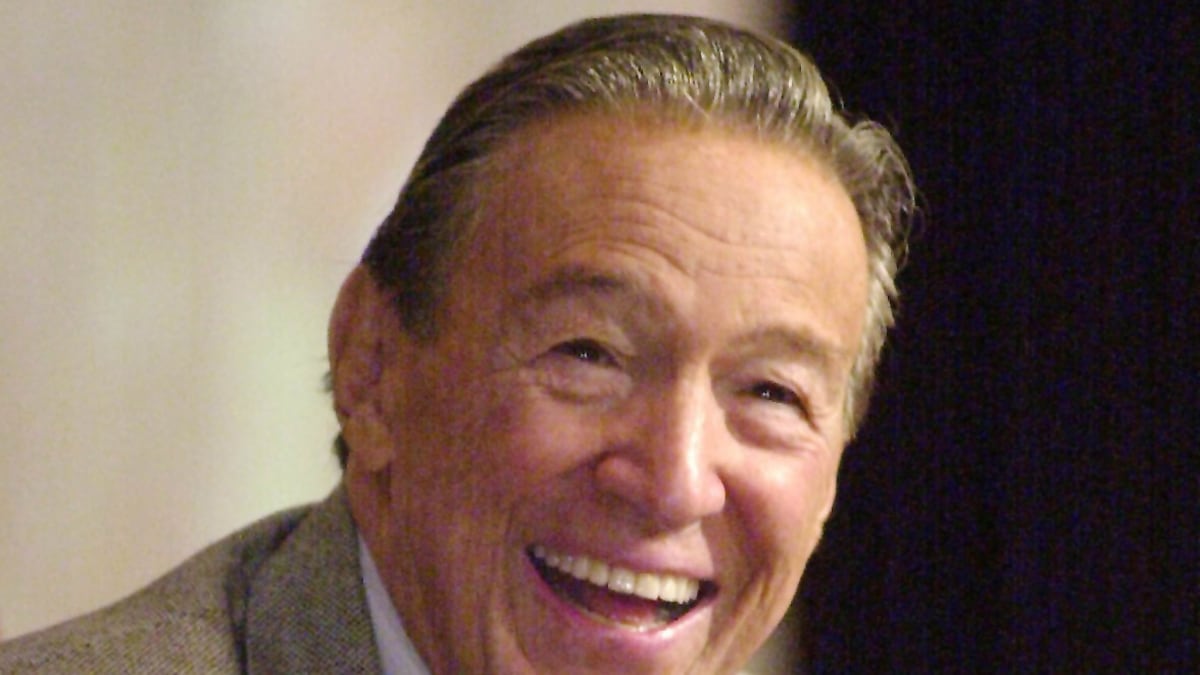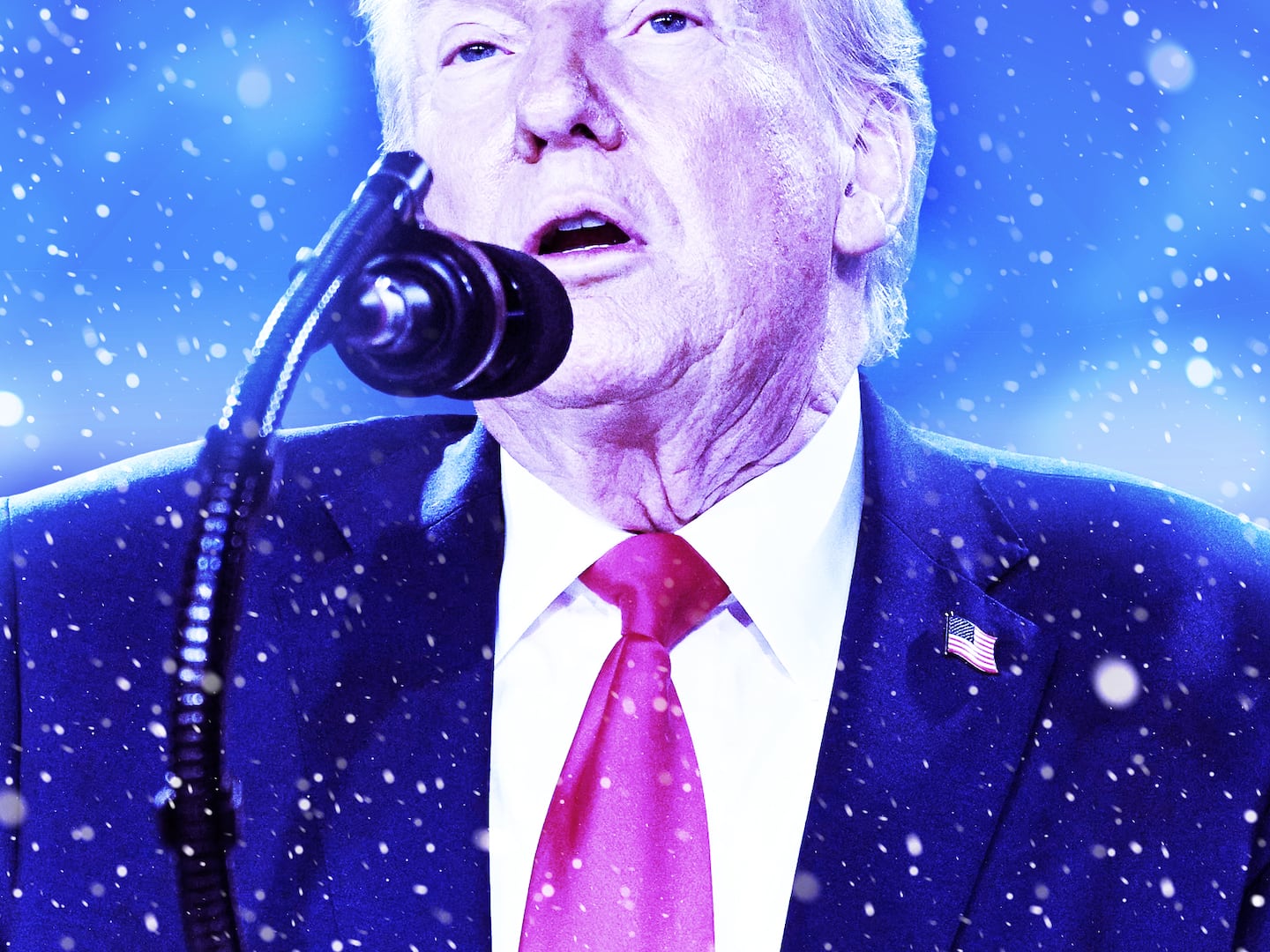
Peter Rader, a filmmaker and screenwriter, had wanted to make a movie about 60 Minutes icon Mike Wallace after hearing his story from his sister, Claudia Rader, who worked with Wallace in the 80s. Though parts of Wallace’s life have been covered, including by Wallace himself in two memoirs, Rader sought to “tell the story of the man behind the legend who reshaped the face of television news.” Wallace died Saturday at the age of 93; Mike Wallace: A Life will be published later this month.
“Chinky”
Myron Leon Wallace was born in Brookline, Mass., in 1918, a year after John F. Kennedy was born five doors away. Because he had squinty and slanted eyes, the other kids gave him the nickname “Chinky.” His father was a gentle, honorable grocer, but his mother was “moody” and “humorless,” he said.
His Son’s Death
Wallace graduated from the University of Michigan, and after some light duty during World War II, Wallace became a radio announcer, a TV game-show host, and finally, a host of interview programs, which is what he would come to be known for. By 1962 Wallace already had two sons—the younger Chris (now the host of Fox News Sunday) and the elder Peter, an undergraduate at Yale who was backpacking in Greece that August. When Wallace didn’t hear from Peter for nearly a month, he traveled to Greece to look for Peter, eventually finding him at the bottom of an abyss where rocks had given way in a small avalanche. “It was the worst thing that ever happened to me,” he said.
60 Minutes, the Ayatollah, and Carter
The death of his son led Wallace to concentrate on more worthwhile work, and he decided to devote himself exclusively to journalism. 60 Minutes debuted in 1968. It wasn’t immediately popular, and didn’t break into TV’s top 30 shows until the mid-1970s. But then it became a hit, and by February 1980, even the president of the United States had to beg Wallace for mercy, when Jimmy Carter gave CBS News chief Bill Leonard a call. “We think it’s very important for the country that you all don’t run that program,” Carter told Leonard. At issue was Wallace’s explosive story that indicted the U.S.’s three-decades-long support of the shah of Iran, which led to the 444-days-long hostage crisis. Wallace had secured the first-ever television interview with the new supreme leader, the Ayatollah Khomeini. Wallace stood up to Carter, insisting that his piece be broadcast. That year, 60 Minutes had its first No. 1 spot in the Nielson ratings.
Depression
But Wallace had long suffered from depression, perhaps thanks in part to his overbearing and chronically depressed mother. He kept it a secret, but things worsened in 1984 when Gen. William Westmoreland filed a $120 million libel suit against CBS. Wallace alleged in a story that Westmoreland had altered intelligence reports and understated the strength of the Viet Cong during the Vietnam War. After years of seeming infallibility at the top, there was growing opinion that maybe Wallace’s “Gotcha!” journalism was going too far, and he was simply reading a predetermined script. Wallace started to doubt himself, and sank into a deep depression.
Suicide Attempt
The day before New Year’s Eve, 1984, Wallace wrote a suicide note at home in New York, took an overdose of sleeping pills, and fell into a coma. His private doctor couldn’t resuscitate him on the spot, and he was only revived after having his stomach pumped in hospital. “After the fact, people close to Mike have speculated that the episode was a cry for help, rather than a bona fide attempt to end his life—that Mike was far too narcissistic for that.” His wife, Mary, forced him to see a psychiatrist, who diagnosed him with clinical depression.
The Insider
Wallace’s troubles would not end there. In 1995, Wallace conducted an interview with Jeffrey Wigand, who blew the whistle on big tobacco. One of the tobacco executives who had sworn under oath that cigarettes were not addictive was Andrew Tisch, son of CBS Chairman Laurence Tisch. On top of that, Tisch was negotiating to sell CBS to Westinghouse for $5.4 billion, and the threat of litigation might quash the deal. CBS corporate ordered Wallace to kill the interview. Wallace agreed, on the condition that the segment end with a disclaimer: for the first time on 60 Minutes, CBS had ordered Wallace to not do something. Even with these on-camera remarks, Wallace’s consent irrevocably damaged his reputation.






